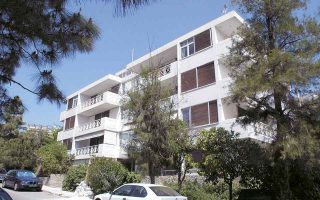Athens projects to boost house rates
Plans for facelifts and infrastructure works will bolster property by the end of the decade

The major city facelifts and infrastructure projects in the capital, totaling more than 10 billion euros, are generating high expectations for capital gains in the Attica property market.
The development at Elliniko and the planned extension of the Athens metro headline the projects and are expected to shape the outlook of the real estate market this decade. However, apart from these landmark projects, the state has also planned for several other interventions in various parts of Athens, from Ymittos (the former PYRKAL factory site) to Korydallos (the relocation of the prison) and from the northern suburbs (the Tatoi Estate overhaul) to Ampelokipi and Votanikos (twin facelifts).
Capital gains will obviously not come up overnight, nor do they concern all of the districts they are planned for. They will begin to have a positive effect on property prices as soon as the wider public begins to feel their impact, that is close to their completion date.
“Do not expect prices to jump 30% within 12 months,” says Lefteris Potamianos, head of the Athens-Attica Estate Agents Association. For example, for projects such as the metro and Elliniko price hikes should not be anticipated before the middle or even the end of this decade. For Elliniko in particular, part of the capital gains has already been factored in the current sale prices.
Furthermore, it is only properties within a 500-meter radius from the location of the projects or the spots due for facelifts that will benefit most. In the past there have been cases of owners raising their asking prices 25%-35% because their assets were 2 or even 3 kilometers from a new park or a metro station – such assets cannot expect to benefit.
Another question is whether there will be any demand to match the rising rates in those areas. The last year has shown the gap between prices and household purchase power to grow again. Potamianos notes that “the residential market did not stop operating at all during the health crisis. Transactions were reduced but original estimates about a 10%-15% price drop were not vindicated.”





